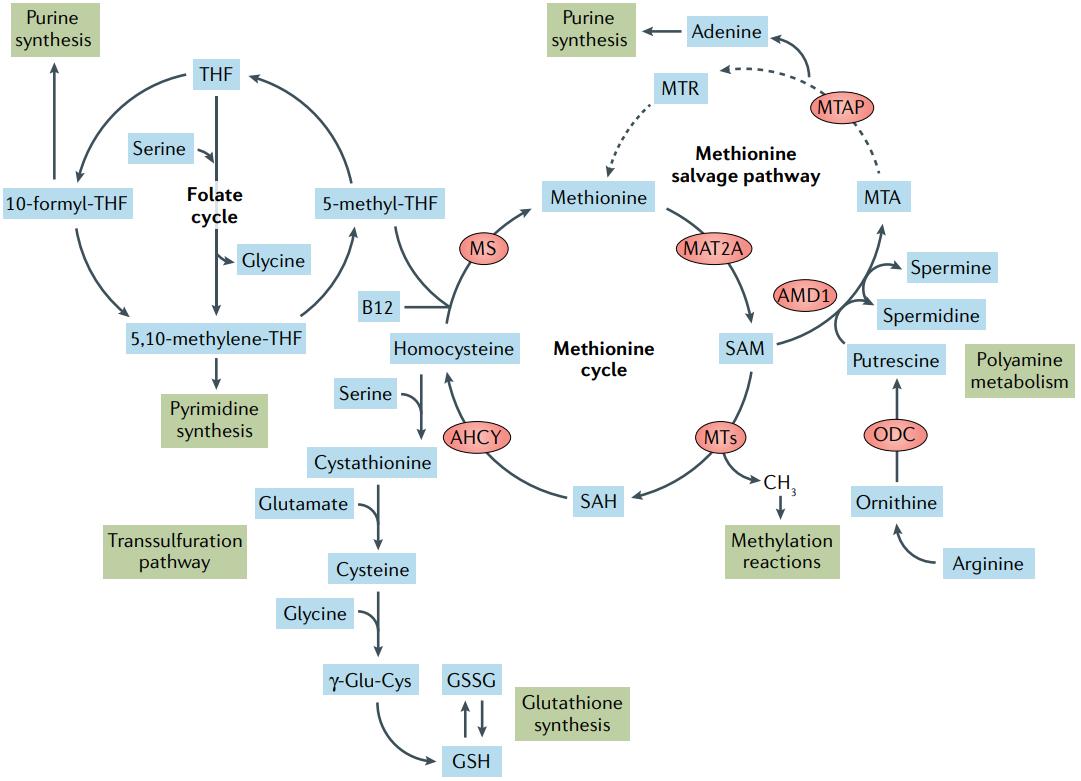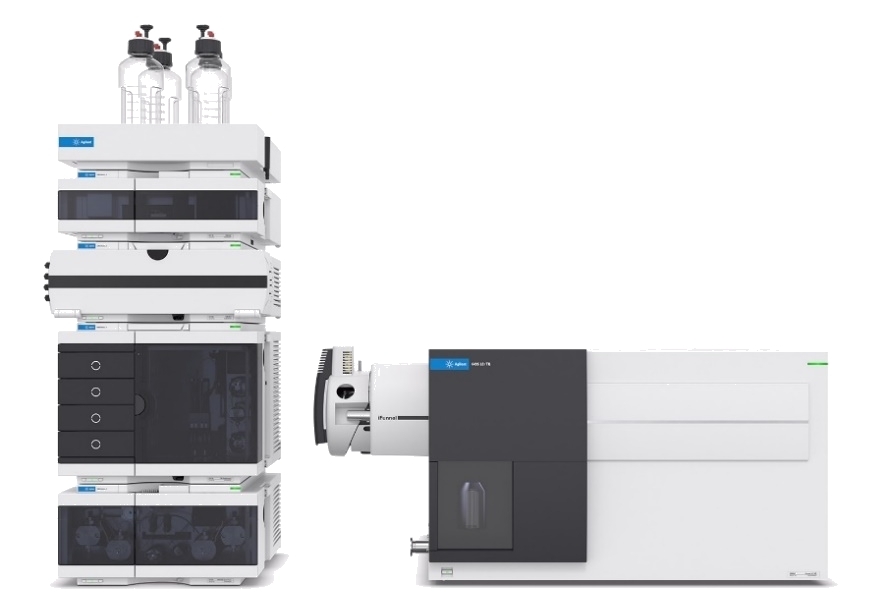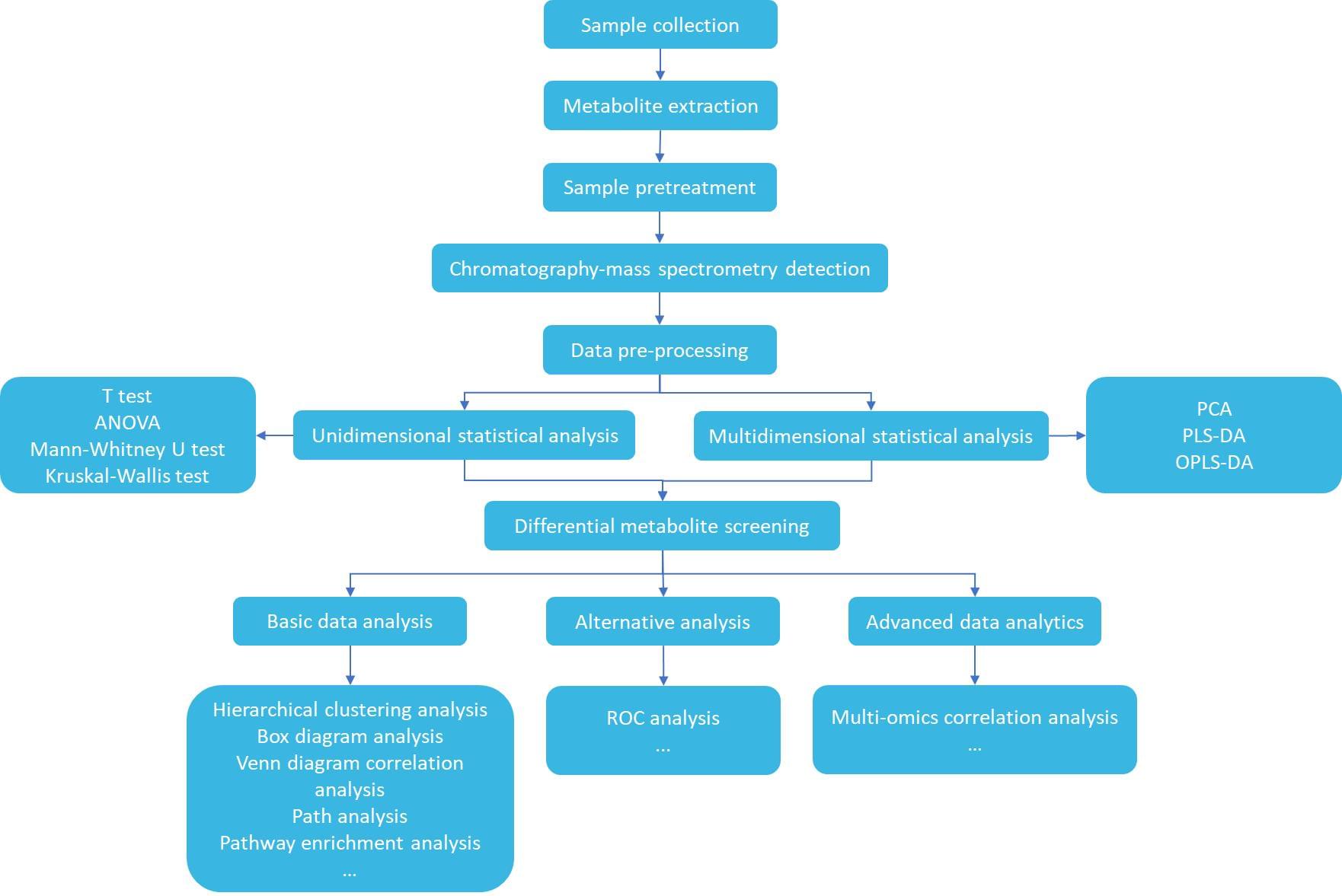Methionine, one of the 20 amino acids that make up proteins, is an essential and ketogenic amino acid for mammals and plays a critical role in many cellular processes, including protein synthesis, DNA methylation and cellular redox homeostasis. If methionine is deficient it can lead to impaired protein synthesis in the body and cause damage to the body. Excessive oxidation of membrane lipids caused by oxygen free radicals in the body is responsible for a variety of damage to the body. Lipid peroxidation damages primary and secondary lysosomal membranes, causing the release of acid phosphatases contained in lysosomes as hydrolytic enzymes and causing damage to vital organelles such as cellular and superficial granule membranes, and methionine fights these damages through multiple pathways.
The methionine cycle consists of two main steps. In the first step, methionine adenosyltransferase IIα (MAT2A) consumes methionine and ATP to produce SAM as a universal methyl donor and SAH as a byproduct of the methylation reaction. The second step regenerates methionine by reversible conversion of SAH to homocysteine via SAH hydrolase (SAHH). Subsequent resynthesis of methionine from homocysteine by using methyltetrahydrofolate (CH3-THF) as a methyl donor is catalyzed by methionine synthase (MTR). Some of the key methionine metabolites include S-adenosylmethionine (SAM), S- adenosylhomocysteine (SAH), and homocysteine.
 Methionine metabolism and related metabolic processes (Sanderson et al., 2019)
Methionine metabolism and related metabolic processes (Sanderson et al., 2019)
Dysregulation of the methionine cycle has been associated with a variety of diseases, such as cancer, liver disease, and neurodegenerative disorders. For example, in cancer research, methionine metabolism has been shown to be a promising target for therapeutic intervention. Tumor cells typically have a high demand for methionine due to increased protein synthesis rates, and inhibition of methionine metabolism has been shown to selectively kill cancer cells while protecting normal cells. In liver disease, methionine cycle dysfunction is associated with the development of nonalcoholic fatty liver disease and nonalcoholic steatohepatitis. In addition, alterations in the methionine cycle have been observed in neurodegenerative diseases such as Alzheimer's disease, and targeting methionine metabolism has been proposed as a potential therapeutic strategy.
Methionine metabolism analysis is essential in understanding various metabolic disorders, including liver disease, cancer, and cardiovascular disease. The analysis can help identify biomarkers that can aid in early diagnosis and monitoring of these diseases. Based on LC-MS technology, Creative Proteomics provides qualitative and quantitative analysis of metabolites in the methionine cycle, focusing on significant changes in metabolites associated with the methionine cycle pathway.
Technology Platform for Methionine Cycle Metabolism Analysis
Agilent 6495 Triple Quadrupole LC/MS Coupled with the Agilent 1290 Infinity II LC System

Service Workflow

Deliverables
- Sample report: Includes sample type, processing method, storage conditions and quality control check results.
- Identification report: Provides information on the molecular weight, retention time and spectral data of the identified metabolites, and determines the confidence level of identification based on spectral matches and the presence of isotope peaks.
- Quantitative report: Provides the level of the identified metabolite in the sample, as well as statistical indicators such as mean, standard deviation, and coefficient of variation. The report may also include comparative analysis of metabolite levels between samples or groups.
- Interpretation Report: Summarizes the results of the analysis, including significant changes in metabolite levels or other custom analysis elements.
Project Cycle
A standard experiment and analysis process takes about 2~6 weeks.
If you would like to analyze other metabolites or learn more, please contact us. We look forward to working with you.
Reference
- Sanderson, Sydney M., et al. "Methionine metabolism in health and cancer: a nexus of diet and precision medicine." Nature Reviews Cancer 19.11 (2019): 625-637.
For Research Use Only. Not for use in diagnostic procedures.


 Methionine metabolism and related metabolic processes (Sanderson et al., 2019)
Methionine metabolism and related metabolic processes (Sanderson et al., 2019)
